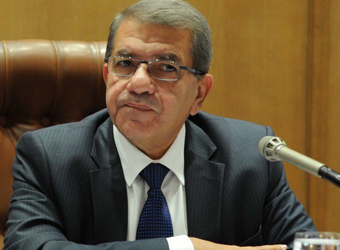Egypt is clawing itself back in favor with international investors after being shunned for over six years, but it’s having to pay returns only eclipsed by Argentina.
The Egyptian Treasury bill market attracted more than $9 billion since the central bank allowed the currency to trade more freely in November, triggering a sharp devaluation and jump in interest rates. The country hasn’t managed to bring in that kind of money since 2010, before the Arab Spring revolution.
“If you’re an emerging market investor, you can come in and buy the world’s second-cheapest currency, offering very high yields and very low volatility; said Charles Robertson, global chief economist at London-based Renaissance Capital. “That’s extremely attractive.”
Avoided by investors because of its overvalued currency and a distressed economy scrapping by on handouts from oil-rich Gulf neighbors, Egypt has quickly rebuilt a case for itself with the pound’s 50 percent devaluation, a five percentage-point increase in interest rates and an International Monetary Fund-backed plan to revive the economy.
The most populous Arab nation now offers the world’s highest yields after Argentina, a country that has an economic crisis roughly every decade. Egypt guarantees investors can repatriate profits and the pound is trading at a level that President Abdel Fattah al-Sisi says is below fair value.
The average yield on one-year Treasury bills was 21 percent at the latest sale compared with less than 12 percent before the central bank started raising interest rates at the end of 2015.
The perennial risk, though, remains the health of the economy. Inflation has shot up 30 percent, pressuring the 93 million population, half of whom live below or near the poverty line just as the government cuts fuel subsidies.
Although the inflows are a positive signal for Egypt, some economists say the country now needs to make a bigger effort to spur companies to invest the kind of money that boosts economic growth and might tackle chronic double-digit unemployment.
“Investors are excited because they’re getting an extremely attractive yield on a very short-dated paper, but six-month T-bills don’t yield 20 percent because the economy is in great shape,” said Jean-Paul Pigat, founder and head of research at Dubai-based Lighthouse Research. “There’s been an improvement in Egypt’s external position because of these inflows, but that’s not going to translate into faster economic growth or job creation.”
Currency Boost
That said, the pound has strengthened 1.3 percent since Sunday. Analysts say it may be embarking on a rally, breaking a three-month spell of trading within a tight range of no more than a half a percent that raised questions over whether the central bank was sticking to its pledge to allow supply and demand to determine the exchange rate. The IMF in May commended the regulator on maintaining a “floating exchange rate regime.”
The currency’s appreciation would add to the profits of so-called carry traders, who use hard currency borrowed from from low interest rate economies to invest in the financial assets of high interest ones, usually emerging and frontier markets such as Egypt.
The flood of foreign investments into Egyptian bonds goes to the central bank’s repatriation fund, which guarantees expedited transfer of money abroad.
“Right now, it’s a one way bet for the pound to appreciate, but if inflation continues, the risk changes to the downside,” said Mohsin Khan, Washington-based senior fellow at Atlantic Council’s Rafik Hariri Center for the Middle East. “More volatility in the exchange rate would be good because it would show agents that market forces are at work and that the central bank’s main focus is bringing down inflation.”
Source: Bloomberg


